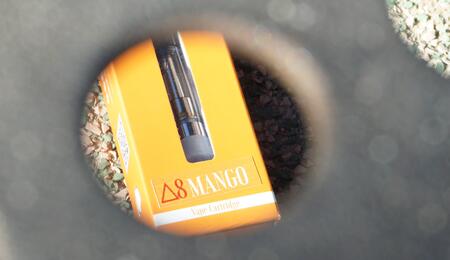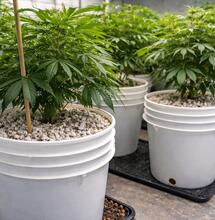DEA Statement: Delta-9-THCO and Delta-8-THCO Not Hemp

Synthetic cannabinoids have been a subject of controversy ever since their appearance and rise to popularity. Manufacturers have referred to the Farm Bill 2018 to push hemp-derived synthetic THC analogs on the market. While the government has not adopted a decisive course of action on how to regulate these new compounds, governmental agencies like the Food and Drugs Agency (FDA) have issued warnings in the past. Now a letter from the Drug Enforcement Agency (DEA) says Delta-9 THCO and Delta-8 THCO are not the same as hemp.
According to a recent letter from the DEA, delta-9-THCO and delta-8-THCO are not considered hemp, but rather controlled substances. The agency statement comes from an email exchange where it was inquired about the status of THC acetate ester (THCO) under the Controlled Substances Act (CSA).
A representative of the DEA reportedly wrote that since Delta-9-THCO and Delta-8-THCO are synthetic and are not naturally extracted in cannabis, they are not counted as hemp and are therefore controlled substances.
"The only substances of which the Drug Enforcement Administration (DEA) is aware of the THC acetate ester are delta-9-THCO (delta-9-THC acetate ester) and delta-8-THCO (delta-8-THC acetate ester)," the statement says. "The Drug Enforcement Administration (DEA) reviewed the CSA [Controlled Substances Act] and its implementing regulation with regard to the controlled status of these substances."
The Controlled Substances Act classifies THC as a naturally occurring compound in cannabis plants. Moreover, the CSA also puts any synthetic analogs to THC in the same category. A synthetic analog or equivalent would be any compound with a similar chemical structure and pharmacological activity to the compounds derived from cannabis plants.
This definition dictates that the DEA cannot classify neither Delta-9-THCO nor Delta-8-THCO as hemp.
"Delta-9-THCO and Delta-8-THCO do not occur naturally in the cannabis plant and can only be obtained synthetically, and therefore do not fall under the definition of hemp," adds the statement.
The two synthetic cannabinoids are structurally similar and generate similar effects to those contained in cannabis plants and are therefore equivalent to "tetrahydrocannabinol" or THC, which the DEA classifies as Schedule I.
Does this mean anything for the industry?
The latest DEA statement doesn't mention the legal status of hemp-derived cannabinoids such as Delta-9-THCO or Delta-8-THCO. Still, it does outline an "official" view that, according to the agency, these novel compounds are controlled substances.
The government never came forward with a decisive course of action on how to regulate delta products. Although, last year, some agencies, including the Food and Drug Administration (FDA), issued warning letters to business entities selling delta-8 products and concerns were expressed about the growing popularity of these kinds of products. The warning remarked that manufacturers often billed that these cannabinoids can help with various health conditions, ranging from treating anxiety to treating cancer.
In the meantime, some states like Ohio and Michigan have introduced laws that limit the sale and production of Delta-8 products. Other states, like New York, have entirely banned them.











